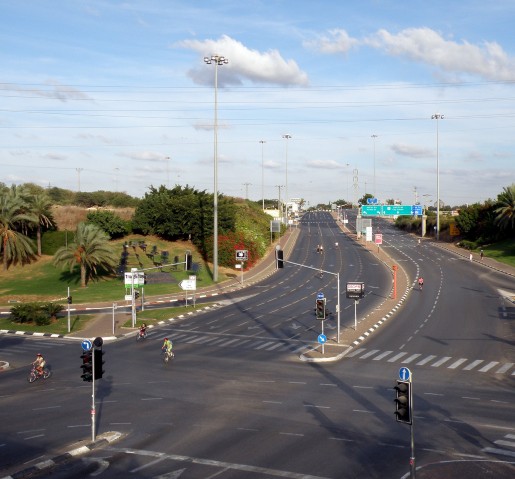Yom Kippur marks the end of the “Ten Days of Repentance,” or the “High Holidays,” and grants Jews a last opportunity to obtain forgiveness and absolution for their sins in the previous year. According to Jewish belief, on Yom Kippur judgment is passed on each person for the coming year. In order to be worthy of forgiveness from sins, this day is devoted to spiritual repentance and a commitment to start the new year with a clean conscience, secure in the knowledge that God forgives every person who truly regrets his misdeeds.
The idea of purification is fulfilled by fasting: on Yom Kippur observant Jews fast from the evening of the holy day until the following night. The fast is intended to not only cause physical discomfort, but to relieve a person of involvement in physical matters so that he can concentrate on the prayer and spiritual introspection required on this day.
Even though most of the Jewish population in Israel is not religiously observant, Yom Kippur has and remains a special day for all and has retained its unique character. Many Jews who define themselves as secular and do not visit the synagogue all year long, go to prayer services on the special day, and many also observe the fast, completely or partially.
Holiday Customs
Selichot - asking for forgiveness. In addition to the prayers during the days of repentance preceding Yom Kippur, on the holy day itself or before it, it is customary to ask forgiveness from anyone whom one might have offended. According to Jewish belief, Yom Kippur atones for the sins between man and God, but not between man and his fellow man - people must grant one another forgiveness individually.
The meal before the fast - on the eve of Yom Kippur there is a religious precept to eat a holiday meal that ends before the beginning of the fast at sunset. The fast begins immediately after the meal.
Prayer - Religious Jews spend the whole of Yom Kippur day in synagogue devoting themselves to prayer. The prayers include a general admission of sins, and each person silently adds his own personal sins. One of the important prayers is Kol Nidrei - All Vows, named after the opening words of the first prayer, which cancels any vows that a person has made. It is customary to go to synagogue dressed in holiday clothing, and many people wear all white clothes, symbolizing purity.
The blowing of the shofar - At the close of Yom Kippur, the shofar - a ram’s horn - is blown to mark the end of the day of prayer and fasting.
On Yom Kippur there is almost no traffic on the roads, and many families go for walks along the city streets. Even in Tel Aviv, a city with a clearly secular character, where there is hardly a day or an hour when businesses are not open and the street are always full of cars, car owners respect Yom Kippur and avoid driving on this day.
Children of all ages, on the other hand, take advantage of this day when the streets are empty and are out on their bicycles, roller blades and skateboards. All businesses are closed on Yom Kippur, including those that are usually open on Shabbat. All Israeli radio and TV broadcasts are also suspended, and only the foreign stations have programming as usual.

A Tel Aviv Highway in Yom Kippur. Photo: CC BY
RonAlmog